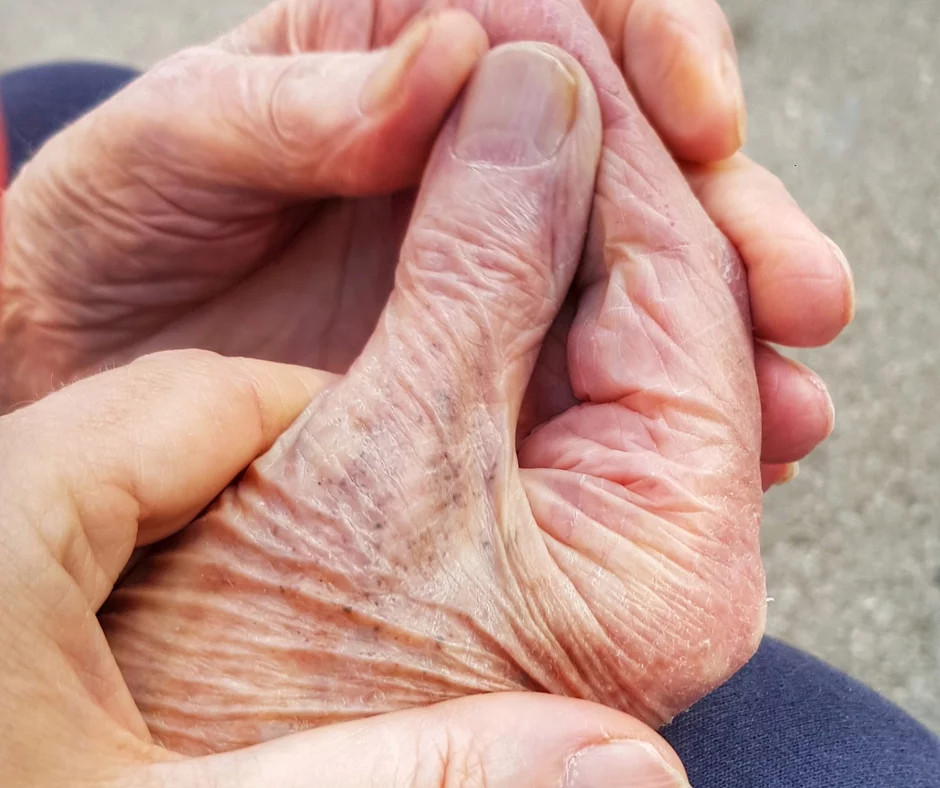The COVID-19 crisis in 2020 forced us to hit the pause button on our regular lives. In the process, we were given the rare and unexpected gift of time free from the compulsive activities that drive so many of us. There was no roadmap to navigate this new normal. We were all responding differently based on our circumstances. For me, it was an opportunity to fully engage in what I call LLP: Love, Learn, Play. It’s a mindset I have been cultivating with growing conviction for several years. It is a simple but powerful framework that I apply to my daily activities, to my relationships and to my work. It helps me find happiness, meaning, purpose and a sense of wellbeing. I believe it can do the same for most of you, no matter who you are, what religion you practice, and what your circumstances are.
Like most people, my life today doesn’t look anything like it did before the pandemic. Having retired five years ago from a demanding business career, I typically divided my time between the United States and India, where I was born and raised. I spent six weeks in New York and four in Mumbai visiting with my eighty-five-year-old mother and eighty-nine-year-old father. I arrived in Mumbai, February 2020, when news of the virus was just beginning to percolate, intending to return to New York the following month. But more than two months passed and I was still in Mumbai confined to my apartment. It was the longest I stayed in any one city in more than thirty years.
I spent this unexpected time in an even more unexpected way, nursing my mother who had fractured her knee and couldn’t stand or walk. The total lockdown and strict condominium rules meant she could not go to the hospital; her therapist could not visit our home, so I gave her cold packs and hot packs three times a day. I massaged her sore muscles twice a day and carried her from room to room. When she went to the toilet, I used to stand by her side. I looked after my dad too, monitoring his blood pressure and vertigo, keeping an eye on his diet. Both Mom and Dad have poor short-term memory, so I needed to monitor their medications. In the absence of household help, I shopped for vegetables, fruit and other necessities.
In the evenings after dinner, I would play a card game with my parents. The three of us would watch television shows on science, philosophy and religion. We also watched a Bollywood movie every other day. I have no interest in many of these programs, but I wanted to keep my parents company. Thanks to the lack of distraction, my dad and I had the opportunity to enjoy deeper conversations. We talked about God and the meaning of life and I learned from his immense wisdom acquired over nine decades. On Saturdays, I would Zoom with twenty other family members, ages two to eighty-nine, fifteen of whom live in the U.S. We shared our news, and my nieces and nephew entertained us often with their musical talents. The kids would show us their artwork. These moments of togetherness are precious for all of us and I realised these would be precious memories we would carry into our future.

In India, the chores I performed daily are traditionally considered to be beneath a man to do. My siblings were shocked by my nursing and shopping routine. I think I was surprised too, not only did I feel peace in the unexpected role, but part of me liked my new life. My parents and I hadn’t spent this much time together since I left home fifty years ago. In quiet interludes, we would reminisce over fond childhood memories. On reflection, I realized my happiest days were when I was a child growing up with my parents, four siblings, grandmother and aunt, living on one hundred dollars a month. We were a close-knit family who loved and cared for each other. We played together a lot and we read a lot. We lived authentically, without worrying about what anybody thought of us. It was a fulfilling childhood with lots of loving, learning and playing.
For a child born in Chandni Chowk in the heart of Old Delhi, I’ve had a wonderfully successful life both socially and materially. I earned my undergraduate degree at the Indian Institute of Technology, India’s equivalent of MIT, and stood out first in my class. After graduating, I landed a coveted job with Unilever. I went on to study at Stanford University’s Graduate School of Business. The only other Indian in my class was Mukesh Ambani, India’s richest man, who I was lucky to work with at his company, Reliance Industries (now one of India’s largest companies). After leaving Reliance, I worked at The Blackstone Group, another iconic organization.
I had reached my professional pinnacle — I joined as a partner in the most prestigious private equity firm in the world and served as Chairman of Blackstone India. After six years at Blackstone, I started to feel, in Aldous Huxley’s words, “There comes a time, when one asks even of Shakespeare, even of Beethoven, is this all?” I am far from being either, but I consider myself enormously lucky to have achieved so much coming from a humble background. I had reached that critical juncture in life when things I had been subconsciously driven to — success, fame, wealth, access to the rich, famous and powerful, flying in private jets, staying in presidential suites — had lost their charm. I wondered if life had something more to offer. I found myself constantly asking, “Is this all?”
After retirement, I spent a five-year sabbatical at Harvard immersing myself deeply and broadly in the work of philosophers, the findings of science and psychology and the wisdom of thinkers and prophets from different cultures and traditions in an attempt to address the existential and essential questions to find meaning. As I distilled and synthesized this rich and complex tapestry of approaches, the LLP framework emerged. I realized that my deepest longings all along were those that were with me in childhood: Love, Learn and Play. These came to me spontaneously. I was not consciously engaging in LLP.
When I began working, I approached my social roles and responsibilities with a sense of duty. I experienced lots of satisfaction through my achievements. In addition, I was rewarded with wealth, power and fame. However, I also had a sense that something was missing, like sugar in an otherwise excellent dessert. On reflection while at Harvard, I became conscious of the means-ends–inversion phenomenon. In our highly materialistic and competitive world, my duties were crowding out my longings for LLP. I had confused power, fame and wealth with life’s ultimate ends, rather than viewing them as means toward love, learning and play as I believe they should be for me and for everyone.
In the midst of the lockdown, I approached my circumstances with the LLP mindset. I discovered or I should say rediscovered Love, Learn, Play as my mantra. My new chores were performed as an expression of love for my parents. The ancient Greeks in their wisdom called this kind of love storge, the enduring love shared by parents and children. How lucky for all of us that I was with them when the lockdown began. They’ve had the help they so needed and I’ve had the chance to be of service, offering myself without expecting anything in return, which is the very definition of love.
I bring learning into my life through voracious reading, perusing the three hundred titles on my Kindle, more than ten online publications covering economics, politics, science, psychology and religion, and distribute selected articles to fifty of my friends and family. I revel in the pleasure of encountering ideas and realities beyond my own. For the first time in a while, I’ve even indulged in fiction, catching up at long last with The Girl With the Dragon Tattoo. By satiating the natural desire to learn, I opened my mind and found meaning in this increasingly complex world.
We set aside time for play as a family, enjoying our evening card game for the pure fun of it. All humans are biologically wired for lifelong play and these small moments pursuing an activity for its own sake with no utility beyond enjoyment inject vitality and happiness into our daily routine. “It is common consensus that kids need to play. However, the balanced adult life needs sufficient amounts of our preferred modes of play to keep us optimistic and better able to deal with life’s real demands,” says Stuart Brown, M.D., founder of the National Institute for Play.
The sense of peace and wellbeing the LLP mindset gives me has attuned me to the small pleasures life offers up even in a crisis like the pandemic. I am counting our new blessings — for the first time in memory, we’re breathing clean air, enjoying sparkling blue skies and hearing birdsong in Mumbai. One day as I was sitting on my balcony with my mom, enjoying these rare privileges, she brightened at hearing a nightingale sing and asked me to fetch her the harmonium. She played “The Song of the Nightingale,” which she had taught me and my siblings as children. I have newfound appreciation for moments like these. Fresh air, sunshine and music were surprising benefits in an unprecedented time.

COVID-19 brought the LLP framework that I stumbled on into full focus, in the way only a life-or-death crisis could. It was another such crisis, the 2008 Mumbai terror attacks that killed almost 200 people, which I escaped by five minutes thanks only to a last-minute change of plans (which I almost never do), that made me feel as if I had a new lease on life. It made me start asking more frequently: “What matters most?” The Covid 19 virus was yet another stark reminder of the harsh truth that life is fragile and we should focus on what matters most. It lifted the social veil of who we think we are and revealed our deeper, more authentic layers. We can no longer think of ourselves as masters, but only as stewards. We do not get to choose how much time we have on earth; we can only choose how to spend it. I encourage everyone to spend it loving, learning and playing. Adopt LLP as your mantra too, whether it’s during challenging times or otherwise, it’ll help you flourish no matter what. Do whatever you do with an LLP mindset. It is compatible with all religions and worldviews and can only enhance your experience.


